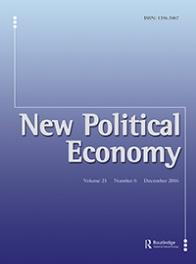Convenient Stalemates: Why International Patent Law Negotiations Continue Despite Deadlock
Thomas Eimer, Susanne Lütz – 2013
For almost 30 years, industrialised, emerging and developing countries negotiate on a substantive patent law harmonisation under the umbrella of the World Intellectual Property Organization (WIPO). Although a common approach or at least some vague outlines of common ground seem beyond reach, all participants regularly agree on a continuation of the discussion process. Despite an incessant wheeling and dealing among delegates and WIPO officials, the only effect is that discussions still keep going on. In our paper, we draw on a synthesis of both neo-mercantilist and liberal institutionalist insights in order to explain the vibrant stalemate of substantive patent law harmonisation talks. We argue that WIPO's involvement in the negotiation process offers an incentive structure for states to continue negotiations even when a successful conclusion appears rather improbable or downright undesirable. WIPO officials do not necessarily oppose the alternative deployment of their resources and services, because national negotiators' tactics at least partially coincide with their own interests. The paper concludes with a summary of the major results and a discussion on their potential empirical and theoretical relevance for further studies.

